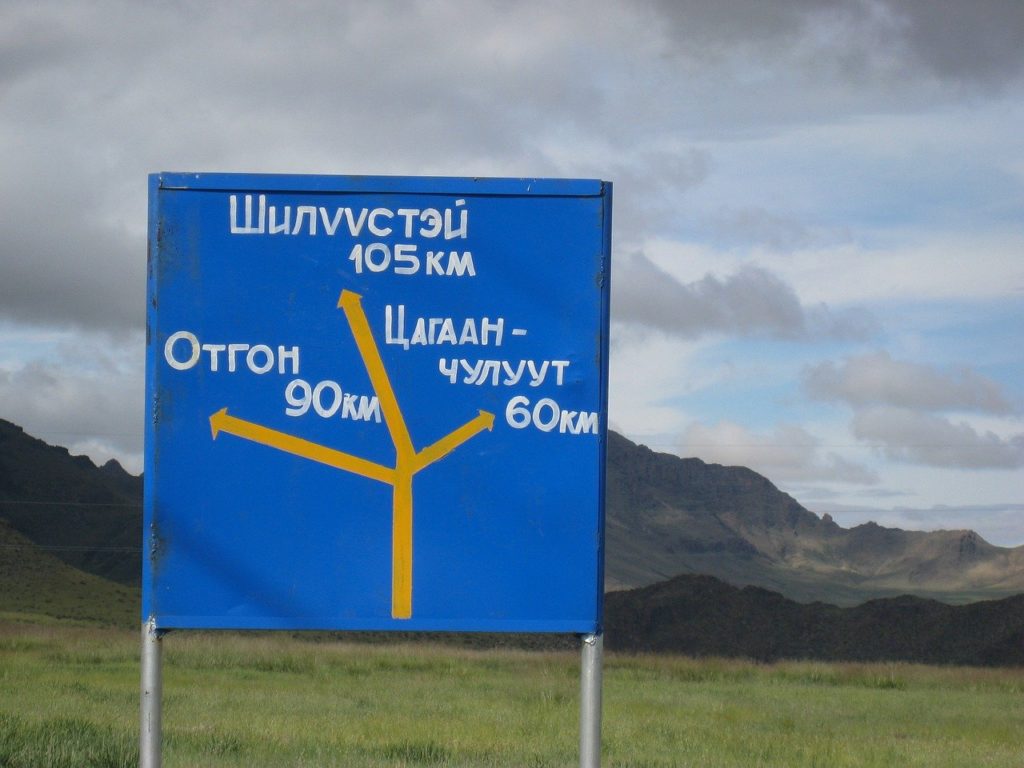Ever wondered “What language do they speak in Mongolia?”
The short answer is that Mongolians speak Mongolian, however, there is more to the history, so if you want to learn more about how Mongolians came to speak Mongolian in the first place, then please stick around.
Is Mongolian A Separate Language?
Yes, Mongolian is its own language separate from any other languages and is not related to any other major languages that you may know of. Although there is the Altaic family theory, recent evidence is showing that it does not have a particular family group and is more so classified in its own category of Mongolic language.
What Does It Sound Like?
The Mongolian language is a mix of both harsh and soft sounds. Depending on how long you hold a certain vowel and sound the words can mean completely different things, so you have to be careful of certain words meaning something else when speaking it. There are subtle sounds at the beginning of a word or at the end, so that can confuse a lot of people.

However, most people comment that Mongolian sounds like a blend between Russian, German, Welsh, and some East Asian languages. Depending on the listener, there are many different answers, but most commonly those languages are mentioned. Mongolian is a very guttural language mixed with soft soothing sounds.
Is It Difficult To Learn?
Learning Mongolian will take some time, because it is one of the harder languages to learn, though a lot of foreigners are interested in learning the Mongolian language due to its unique sounds and eccentric feeling.
If interested you can learn the basics from this eBook.
Do Mongolians Speak English?
The younger generation of Mongolians is starting to learn English in much more detail, whereas from 1990 until 2010, Russian was the preferred second language for most Mongolians to learn. However due to the influence of Western culture, Korea, and Japan for political and economical reasons, nowadays, it is more practical to learn English than any other language.

While in Ulaanbaatar, the capital city, you will be able to get by with English as you will encounter a lot of people who know the basics of the language and will be able to point you to your destination but don’t count on it 100%. When you visit the countryside, it’s a whole different story, so you should be prepared and learn the Cyrillic Alphabet and some basic Mongolian phrases.
Which you can do so from this book.
Do Mongolians Speak Chinese?
A lot of people wrongly assume Mongolians must speak Chinese since they shared a lot of history together, but the fact is that most Mongolians don’t speak Chinese and actually dislike China, which has many reasons that I won’t be able to cover in this article.
Assuming Mongolians speak Chinese is sometimes considered an insult, so you have to be careful about subjects relating to China and Mongolia. The people who do speak Chinese are students who go to China or businessmen who trade with the Chinese.
Do Mongolians Speak Russian?

While Russian was a popular second language from 1940 until the early 2000s, it has fallen out of favor with many schools and people due to economical reasons. There are still many Russian schools and kindergartens that teach Russian, but people are opting to study different languages.
You will however find that most of the older generations can converse somewhat in Russian and know the basics because it was mandatory for them to learn Russian. USSR and Mongolia were major trading partners and allies during the 20th century. Though Russians and Mongolians share the same alphabet, they are completely different languages with different grammars structures.
So if you speak Russian, don’t count on it too well when you do visit Mongolia.
Popular Foreign Languages in Mongolia
Here are the most popular foreign languages that are widely spoken in their respective order.
- English – Most of the youth study English in school and a lot of students have a dream of studying in the U.S or Canada, hence English is a very popular language for practical reasons as well as for doing business and attracting foreign investment.
- Russian – Despite the decreasing popularity since the fall of the Soviet Union, there is still a sizeable amount of the Mongolian population who can speak Russian and there are still plenty of Russian schools/scholarship opportunities to study in Russia.
- Korean – Korean has been gaining popularity due to the increasing Korean cultural influence in Mongolia. From fashion, style, music, and TV drama. Since 2010, interest in Korea and the Korean language has been steadily growing.
- Japanese or Mandarin Chinese – It’s not uncommon to come across a Mongolian who is studying Mandarin or Japanese. It’s because the particular individual is interested in studying/working abroad in Japan or China, but these languages are not on the same level of popularity as Korean.
- German – There is a sizeable Diaspora of Mongolians living in Germany. The government cooperation between Germany and Mongolia is high hence many Mongolians study in Germany via special programs. There are quite a few German schools in Mongolia too.
